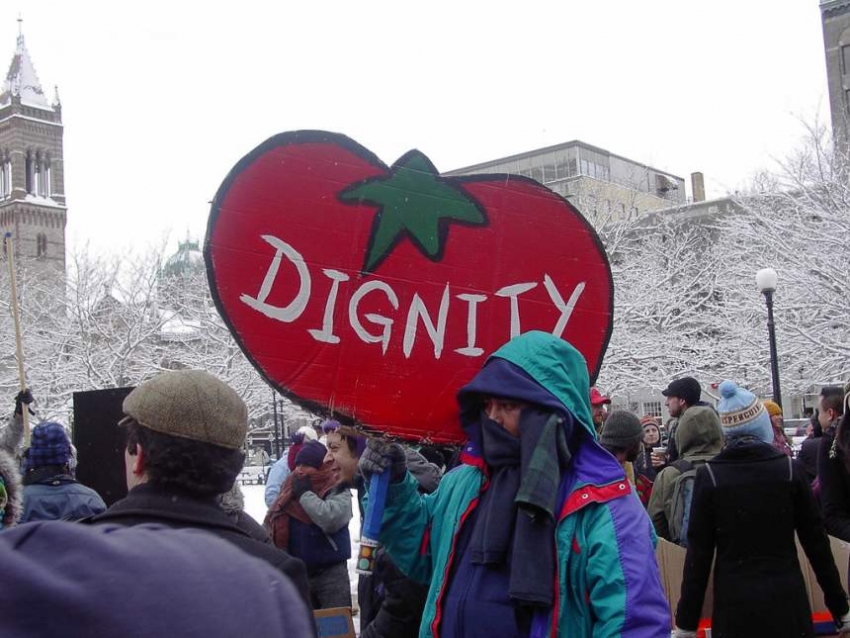For Once, Workers Win Over Walmart

The Coalition of Immokalee Workers (CIW) has already prevailed in a string of David vs. Goliath battles to wring concessions on wages and working conditions from some of the country’s largest food chains. But CIW recently toppled the largest retail giant of them all. On January 16, Walmart signed onto CIW’s Fair Food Program (FFP), in what labor advocates are hailing as a breakthrough victory.
For more than a decade, CIW has fought for workers in the tomato fields of Immokalee, Fla. , who are largely undocumented and face sub-poverty wages, intimidation and sometimes even outright violence. CIW won its first major victory against Taco Bell in 2005, when the company agreed to pay a penny more per pound for its tomatoes, an increase that would be passed directly on to pickers. Since then, a series of successes has followed as 11 more companies—including McDonald’s, Chipotle and now Walmart—signed onto the FFP. The program mandates not only a living wage for pickers, but a Code of Conduct that includes a zero-tolerance policy for sexual assault or slavery, education sessions on workers’ rights, and creation of the Fair Food Standards Council, an independent third party that audits employer compliance.
The CIW points to the program’s worker-led approach as the key to its success. “When it comes to protecting human rights, the humans whose rights are in question must be the principal architects of the effort, and market consequences are the only incentive powerful enough to ensure compliance,” the organization said in an e-mail to In These Times. With the help of consumer allies, CIW has organized pickets and boycotts of companies that resist signing onto the FFP.
Ultimately, CIW has been successful in changing the labor landscape in Florida’s fields. Ninety percent of the state’s tomato farmers now abide by the terms laid out in the FFP. CIW is hopeful that the model could spread beyond state lines and to other crops: “Lessons learned in Florida’s fields could ultimately provide a road map for the protection of workers’ rights far beyond the U.S. agricultural industry.”
